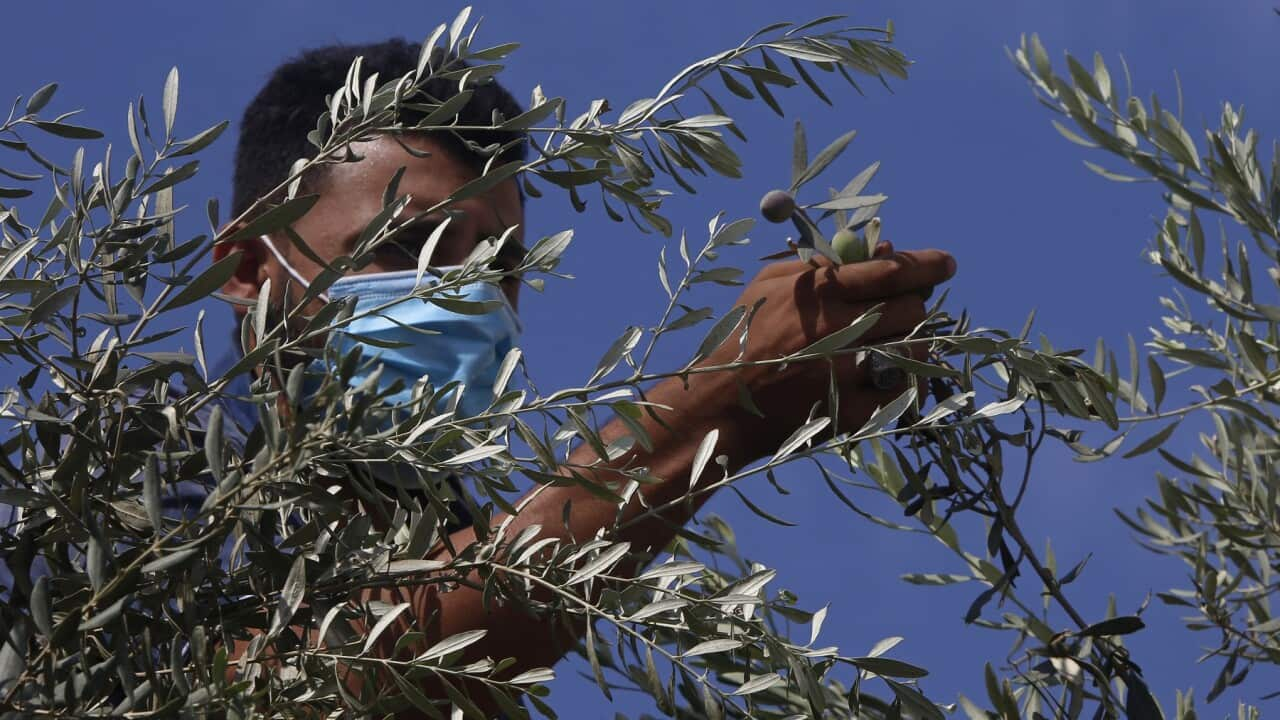TRANSCRIPT:
Olive oil is one of the most well known food dressings.
It goes well with salads and can also be used for pan frying and deep frying.
Sam Beaton is the co-CEO of Cobram Estate Olives.
He says prices have been skyrocketing because of strong demand - and uneven supply.
Currently, pantry staple olive oil prices are around $71 online for a four-litre tin, or $27.50 for a 750ml bottle.
"What we've seen in Australia is that demand still remains really strong and I think that the function is high quality olive oil, which consumers know is a really healthy product and has some amazing health benefits."
While many people might associate the Middle East with the growing of olives for olive oil, it's Spain that is the world's largest producer.
Michael Southern, C-E-O of the Australian Olive Association, says Spain has experienced difficult market conditions.
"It's a supply and demand issue. So in Australia, we produce about enough olive oil to satisfy half of the domestic demand. The other half comes from imported olive oil and the majority of imported olive oil comes from Spain. And Spain's experienced a drought for the last two years, which has really tightened supply. And so, as a result, there's just less olive oil coming to Australia, and supply is tight and demand has kept up - so prices have gone up. While supply is short, we'll see higher prices."
International Olive Council figures show that global production of olive oil fell from 3.42 million tonnes in the 2021-2022 season to 2.57 million tonnes in 2022-2023.
But Robert Armstrong, the proprietor of ALTO Olives, says local producers have also experienced a poor harvest season.
"It's not only I. Most growers across the country have been badly affected by climate change, this past year particularly. And that has exhibited itself through intense frost. Which, in our case, exhibited itself in late October-early November last year, which is the time when the trees are all flowering."
Mr Southern has expressed his optimism that olive oil prices have reached their peak.
"Prices probably won't go too much higher. I think we've seen a bit of a plateau now, with prices. We have heard that Spain has had some rain, which has helped their crops. So hopefully their production will increase a bit. And our new season oil has come onto the market here in Australia as well. What we hope is that prices won't get too much higher because we want people to still be able to buy and enjoy all the great extra virgin olive oil that we produce here in Australia and enjoy the flavour and health benefits of it. So we anticipate at this stage that prices shouldn't change too much more and, with time, hopefully supply will increase."
Mr Beaton says that increase in crops could lead to a drop in olive oil prices.
However, he's quick to point out that any significant change to the cost of the product will need time to come into effect.
"Yeah look, you would expect that and I think that may come in the form of increased promotion or deeper promotion. But it does take a long time to flow through, by the time the olives are harvested, stored, bottled and sent over to Australia. In terms of European oil, it is most likely it will take six to twelve months, at least, from here."
So, what can be done in the meantime?
Extra virgin oil is high in good fats — monounsaturated fatty acids — and is rich in antioxidant compounds like vitamin E.
It is an essential part of the Mediterranean diet, which some studies have found can reduce symptoms of anxiety and stress and improve cardiovascular health.
It can be difficult to replace for those who use it on a regular basis.
But Teresa Kryger, a nutritionist from New South Wales, suggests some alternatives for those who can no longer afford to keep it on their shopping list.
"If you're looking for alternate fats, I would lean on things like avocado and nuts and seeds. They will give you the same type of essential fatty acids that the olive oil does. If you're looking at cooking, I'm all for just straight-up butter. A lot of people think butter isn't healthy, but actually, it is. Not margarine, I wouldn't touch that. But if we're looking for cooking and frying, you can definitely lean on some butter."













